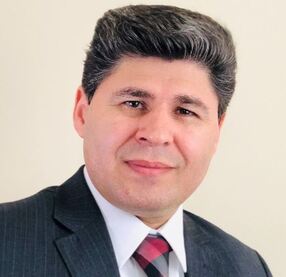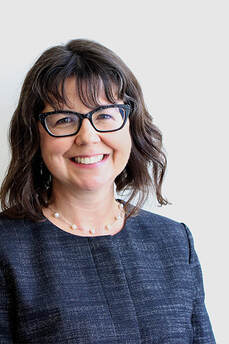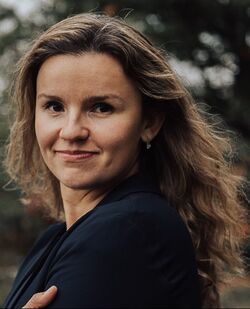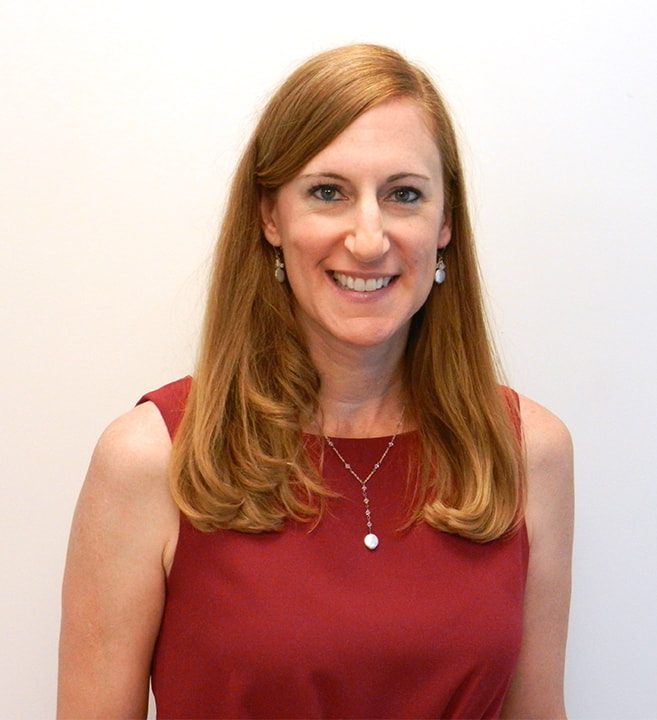Canadian Interprofessional Health Collaborative Board of Directors / Conseil d’administration du Consortium pancanadien pour l’interprofessionnalisme en santé
Honorary Directors
Vision, courage, perseverance - three words of many that exemplify the very best of two members of the interprofessional education and collaborative practice field in Canada, Ruby Grymonpre and John H.V. Gilbert. John and Ruby were instrumental in establishing CIHC and providing a vision for interprofessional education, research, policy development and collaborative practice not only in Canada but also internationally. To celebrate the long-term committment and contributions of these two individuals, the CIHC Board of Directors awarded John and Ruby honorary CIHC directorships.
Vision, courage, perseverance - three words of many that exemplify the very best of two members of the interprofessional education and collaborative practice field in Canada, Ruby Grymonpre and John H.V. Gilbert. John and Ruby were instrumental in establishing CIHC and providing a vision for interprofessional education, research, policy development and collaborative practice not only in Canada but also internationally. To celebrate the long-term committment and contributions of these two individuals, the CIHC Board of Directors awarded John and Ruby honorary CIHC directorships.
|
Directors
|

Cynthia Andrews
Cynthia Andrews DDS MEd is an Assistant Professor in the Department of Dental Clinical Sciences, and IPE Coordinator at the Faculty of Dentistry, Dalhousie University. She practiced general dentistry for 10 years before entering academia in 2001. Her interest in interprofessional practice began in 2001 while navigating elderly family members through cancer care. It grew to encompass IPE in her academic practice. She has been involved in the design, implementation, facilitation, evaluation and governance of IPE at the Program, Faculty and University level since 2005, and has served on a multitude of IPE committees and working groups for the past 13 years. She is particularly interested in IPE curriculum design and mapping.
Cynthia Andrews est docteure en médecine dentaire et professeure adjointe au Département de médecine dentaire et coordonnatrice en FIP à la Faculté de médecine dentaire de l’Université Dalhousie. Elle a pratiqué la médecine dentaire générale pendant dix ans avant de d’amorcer une carrière universitaire en 2001. C’est cette même année qu’elle commence à s’intéresser à la pratique interprofessionnelle, ayant aidé des membres aînés de sa famille aux prises avec le cancer à se retrouver dans le système de santé. Cet intérêt gagna sa pratique universitaire. Elle s’implique depuis 2005 dans la conception, mise en œuvre, facilitation, évaluation et gouvernance de la FIP au sein de son programme, de sa faculté puis de l’université et siège sur de nombreux comités en lien avec la FIP depuis 13 ans. Elle s’intéresse particulièrement à la conception et à l’organisation de curriculum de FIP.
Cynthia Andrews DDS MEd is an Assistant Professor in the Department of Dental Clinical Sciences, and IPE Coordinator at the Faculty of Dentistry, Dalhousie University. She practiced general dentistry for 10 years before entering academia in 2001. Her interest in interprofessional practice began in 2001 while navigating elderly family members through cancer care. It grew to encompass IPE in her academic practice. She has been involved in the design, implementation, facilitation, evaluation and governance of IPE at the Program, Faculty and University level since 2005, and has served on a multitude of IPE committees and working groups for the past 13 years. She is particularly interested in IPE curriculum design and mapping.
Cynthia Andrews est docteure en médecine dentaire et professeure adjointe au Département de médecine dentaire et coordonnatrice en FIP à la Faculté de médecine dentaire de l’Université Dalhousie. Elle a pratiqué la médecine dentaire générale pendant dix ans avant de d’amorcer une carrière universitaire en 2001. C’est cette même année qu’elle commence à s’intéresser à la pratique interprofessionnelle, ayant aidé des membres aînés de sa famille aux prises avec le cancer à se retrouver dans le système de santé. Cet intérêt gagna sa pratique universitaire. Elle s’implique depuis 2005 dans la conception, mise en œuvre, facilitation, évaluation et gouvernance de la FIP au sein de son programme, de sa faculté puis de l’université et siège sur de nombreux comités en lien avec la FIP depuis 13 ans. Elle s’intéresse particulièrement à la conception et à l’organisation de curriculum de FIP.
Cory Brown
Cory Brown, CPA, CA, CFA, holds the position of Manager at Beaumont Advisors Limited. In this role, Cory is responsible for preparing comprehensive reports which serve to identify risks within the operational and governance structures of hedge fund investment managers, including recommendations to mitigate such risks. Prior to Beaumont, Cory worked in Deloitte’s audit practice in both Vancouver and the Cayman Islands where he was involved in the financial statement audits of publicly listed
companies, private companies, pension plans, and hedge funds. Cory also has experience auditing internal controls related to financial reporting processes as required by the Sarbanes-Oxley Act. Cory holds a Bachelor of Business Administration, Accounting Major from Saint Francis Xavier University.
Cory Brown, CPA, CA, CFA, holds the position of Manager at Beaumont Advisors Limited. In this role, Cory is responsible for preparing comprehensive reports which serve to identify risks within the operational and governance structures of hedge fund investment managers, including recommendations to mitigate such risks. Prior to Beaumont, Cory worked in Deloitte’s audit practice in both Vancouver and the Cayman Islands where he was involved in the financial statement audits of publicly listed
companies, private companies, pension plans, and hedge funds. Cory also has experience auditing internal controls related to financial reporting processes as required by the Sarbanes-Oxley Act. Cory holds a Bachelor of Business Administration, Accounting Major from Saint Francis Xavier University.

Ryan Brown
Ryan Brown, MPH, MBA, PCP, FRSPH is a paramedic by clinical training and has held numerous educational, operational, regulatory and research leadership positions over the course of his career. Ryan has extensive experience in interprofessional simulation and curriculum design and delivery spanning entry-to-practice, post-licensure, online and university-based education. He is currently a Professional Practice Leader with Nova Scotia Health and an Assistant Adjunct Professor in the Department of Emergency Medicine, Faculty of Medicine at Dalhousie University. Ryan’s research interests include delivery of primary and emergency care by interprofessional teams, IP simulation and evidence synthesis.
Ryan Brown, MPH, MBA, PCP, FRSPH is a paramedic by clinical training and has held numerous educational, operational, regulatory and research leadership positions over the course of his career. Ryan has extensive experience in interprofessional simulation and curriculum design and delivery spanning entry-to-practice, post-licensure, online and university-based education. He is currently a Professional Practice Leader with Nova Scotia Health and an Assistant Adjunct Professor in the Department of Emergency Medicine, Faculty of Medicine at Dalhousie University. Ryan’s research interests include delivery of primary and emergency care by interprofessional teams, IP simulation and evidence synthesis.

Jacinthe Beauchamp
Jacinthe Beauchamp, PhD, is Education consultant at Centre de formation médicale du Nouveau-Brunswick (CFMNB) and an adjunct professor with the Department of family and emergency medicine, Faculty of medicine and health sciences, University of Sherbrooke. Within CFMNB, she fosters the integration of interprofessional education (IPE) and simulation throughout the medical education continuum by developing strong and effective relationships within nursing, respiratory therapy and other health sciences programs. As well, she contributes to the design, implementation and evaluation of several IPE faculty of medicine initiatives.
Jacinthe Beauchamp, Ph.D., est responsable de développement pédagogique et professionnel au Centre de formation médicale du Nouveau-Brunswick (CFMNB). Elle est également professeure associée au Département de médecine de famille et de médecine d'urgence de la Faculté de médecine et des sciences de la santé de l'Université de Sherbrooke. Au sein du CFMNB, elle favorise l'intégration de la formation interprofessionnelle (FIP) et de la simulation tout au long du cursus médical en développant des liens forts et fructueux avec divers programmes en sciences de la santé dont les soins infirmiers et l’inhalothérapie. De plus, elle contribue à la conception, à la mise en œuvre et à l'évaluation de plusieurs initiatives en matière de FIP à la Faculté de médecine.
Hope Bilinski
Hope Bilinski RN MN PhD is Associate Dean, College of Nursing, University of Saskatchewan, Saskatoon, Saskatchewan. Prior to entering academia, Hope practiced nursing for two decades in acute care, long term care, and home care settings in rural Saskatchewan. She holds a PhD in Nursing from University of Saskatchewan where she studied physical activity and the meaning of health of rural children. Hope is involved in interprofessional initiatives and committees at the University of Saskatchewan and is particularly interested in interprofessional education of health sciences students. Her research interests currently focus on aspects of interprofessional education particularly the role of patient and families in teaching interprofessional communication and patient centered care.
Hope Bilinski RN MN PhD is Associate Dean, College of Nursing, University of Saskatchewan, Saskatoon, Saskatchewan. Prior to entering academia, Hope practiced nursing for two decades in acute care, long term care, and home care settings in rural Saskatchewan. She holds a PhD in Nursing from University of Saskatchewan where she studied physical activity and the meaning of health of rural children. Hope is involved in interprofessional initiatives and committees at the University of Saskatchewan and is particularly interested in interprofessional education of health sciences students. Her research interests currently focus on aspects of interprofessional education particularly the role of patient and families in teaching interprofessional communication and patient centered care.
Hope Bilinski, IA M.N, PhD, est vice-doyenne de la Faculté de soins infirmiers de l’Université de la Saskatchewan, à Saskatoon. Avant de poursuivre une carrière universitaire, Pre Bilinski a pratiqué les soins infirmiers de courte et longue durée ainsi que les soins à domicile dans les zones rurales saskatchewanaises pendant deux décennies. Elle détient un doctorat en sciences infirmières de l'Université de la Saskatchewan où elle a étudié l'activité physique et l’importance de la santé chez les enfants en milieux ruraux. Pre Bilinski participe à des initiatives et à des comités interprofessionnels à l'Université de la Saskatchewan et s'intéresse particulièrement à la formation interprofessionnelle des étudiant·e·s en sciences de la santé. Sa recherche actuelle porte sur de nombreux aspects de la formation interprofessionnelle, en particulier le rôle des patients et de leurs proches dans l'enseignement de la communication interprofessionnelle et des soins centrés sur le patient.
Donna Drynan
Donna Drynan, is an Occupational Therapist and Associate Professor and the Associate Head, Fieldwork and Clinical Affairs for the Department of Occupational Science and Occupational Therapy in the Faculty of Medicine at UBC. She also holds the position of Director of Education for UBC Health, a unit that provides systematic collaboration across health programs at the University. Donna is interested in the assessment of clinical competence in practice education settings, including global, and emerging contexts. Her research interests lie in exploring the best ways to teach and evaluate interprofessional education and collaborative practice as well as studying the role reflection and feedback play in the learning process. She stays healthy through active outdoor pursuits and spending time with family and friends.
She is thrilled to be the elected CIHC Board and is excited to work towards the CIHC strategic priorities and needs of the membership.
Donna Drynan, is an Occupational Therapist and Associate Professor and the Associate Head, Fieldwork and Clinical Affairs for the Department of Occupational Science and Occupational Therapy in the Faculty of Medicine at UBC. She also holds the position of Director of Education for UBC Health, a unit that provides systematic collaboration across health programs at the University. Donna is interested in the assessment of clinical competence in practice education settings, including global, and emerging contexts. Her research interests lie in exploring the best ways to teach and evaluate interprofessional education and collaborative practice as well as studying the role reflection and feedback play in the learning process. She stays healthy through active outdoor pursuits and spending time with family and friends.
She is thrilled to be the elected CIHC Board and is excited to work towards the CIHC strategic priorities and needs of the membership.

Debbie Ellen
Debbie Ellen is a pharmacist and IPE Program Director at the University of Waterloo School of Pharmacy. She works with colleagues
from many healthcare, public health, and social care programs and institutions across Southwestern Ontario to develop, implement,
and evaluate collaborative learning activities. Debbie also works with pharmacist preceptors across Ontario to optimize collaborative learning during clinical rotations and to develop processes and tools for assessment prior to entry to practice. Previously, Debbie owned and operated a pharmacy within a family health team, participated in the Ontario Pharmacists’ Association Public Affairs Committee, and held positions in drug plan benefits management, healthcare communications and marketing, and designing medication management programs. Debbie is interested in strategies to help drive IPE learning and assessment across the health professions in Canada, and in exploring methods to assess students’ collaborative competencies.
Debbie Ellen is a pharmacist and IPE Program Director at the University of Waterloo School of Pharmacy. She works with colleagues
from many healthcare, public health, and social care programs and institutions across Southwestern Ontario to develop, implement,
and evaluate collaborative learning activities. Debbie also works with pharmacist preceptors across Ontario to optimize collaborative learning during clinical rotations and to develop processes and tools for assessment prior to entry to practice. Previously, Debbie owned and operated a pharmacy within a family health team, participated in the Ontario Pharmacists’ Association Public Affairs Committee, and held positions in drug plan benefits management, healthcare communications and marketing, and designing medication management programs. Debbie is interested in strategies to help drive IPE learning and assessment across the health professions in Canada, and in exploring methods to assess students’ collaborative competencies.
Moni Fricke
Moni Fricke has been formally involved in IPE/IPC since participating in a Health Canada – funded project in Manitoba beginning in 2006, bringing her professional lens as a physiotherapist to the role of interprofessional collaboration in Indigenous health issues. She was a member of the CIHC Curriculum Sub-Committee from 2006 to 2009 and has relied heavily on the CIHC resources since that time, including the integration of the CIHC Competency Framework in the practice guidelines of regulated
health care professionals in her home province of Manitoba. Dr. Fricke is currently the Director of the Office of Interprofessional Collaboration at the University of Manitoba where she has been able to pursue her professional interests in IPE/C from a combined approach of pedagogy, jurisprudence, and scholarly activity. The events of 2020 in particular have highlighted for her the theoretical and pragmatic overlap between the Quadruple Aim of IPC and social justice issues of power and equity in healthcare for all persons, their families and communities across Canada as well as healthcare providers.
Moni Fricke has been formally involved in IPE/IPC since participating in a Health Canada – funded project in Manitoba beginning in 2006, bringing her professional lens as a physiotherapist to the role of interprofessional collaboration in Indigenous health issues. She was a member of the CIHC Curriculum Sub-Committee from 2006 to 2009 and has relied heavily on the CIHC resources since that time, including the integration of the CIHC Competency Framework in the practice guidelines of regulated
health care professionals in her home province of Manitoba. Dr. Fricke is currently the Director of the Office of Interprofessional Collaboration at the University of Manitoba where she has been able to pursue her professional interests in IPE/C from a combined approach of pedagogy, jurisprudence, and scholarly activity. The events of 2020 in particular have highlighted for her the theoretical and pragmatic overlap between the Quadruple Aim of IPC and social justice issues of power and equity in healthcare for all persons, their families and communities across Canada as well as healthcare providers.
Professeur émérite John H.V. Gilbert, C.M., Ph.D., LL.D., FCAHS
Le Pr Gilbert est un chef de file en matière de formation des professionnel·le·s de la santé en Colombie-Britannique, au Canada et à l'étranger. Sa vision et son leadership ont permis à la formation interprofessionnelle de devenir un des principes fondamentaux de la pratique collaborative et des soins centrés sur la personne. Il est le directeur fondateur de la Faculté des disciplines de la santé de l'Université de la Colombie-Britannique ainsi que professeur émérite. À l’Université Dalhousie, le Pr Gilbert est chercheur principal du Centre collaboratif de l'OMS sur la planification et la recherche sur la main-d’œuvre en santé ainsi que professeur associé à l’École des sciences infirmières. Il occupe la Chaire du Dr TMA Pai en Formation et pratique interprofessionnelles de l’Académie d’enseignement supérieur de Manipai, en Inde, et est professeur associé à l’University of Technology de Sydney. Il est président fondateur du Consortium pancanadien pour l’interprofessionnalisme en santé. Il fut professeur associé à l'Université de Pittsburgh ainsi qu’à l'Université nationale de Malaisie. Il a aussi coprésidé le groupe d'étude de l'OMS sur la formation interprofessionnelle et la pratique collaborative. Il a été élu membre de l'Académie canadienne des sciences de la santé en 2008, puis décoré de la Médaille du jubilé de diamant de la reine Elizabeth II en avril 2012. Il a aussi été récipiendaire, en octobre 2013, du Prix d’excellence pour l’ensemble de ses contributions au développement international des services paramédicaux remis par le International Chief Health Professions Officers Organization. En juillet 2011, le Pr Gilbert est nommé membre de l’Ordre du Canada, la plus haute distinction civile du pays. En 2016, il obtient un doctorat honorifique en droit de l’Université Dalhousie. En 2017, il reçoit le Prix pionnier du Centre national américain de la pratique et de la formation interprofessionnelles pour ses contributions innovatrices menant au développement de la pratique et de la formation interprofessionnelles. En 2018, la fondation du Green College de l’Université de la Colombie-Britannique le désigne comme fellow.
Le Pr Gilbert est un chef de file en matière de formation des professionnel·le·s de la santé en Colombie-Britannique, au Canada et à l'étranger. Sa vision et son leadership ont permis à la formation interprofessionnelle de devenir un des principes fondamentaux de la pratique collaborative et des soins centrés sur la personne. Il est le directeur fondateur de la Faculté des disciplines de la santé de l'Université de la Colombie-Britannique ainsi que professeur émérite. À l’Université Dalhousie, le Pr Gilbert est chercheur principal du Centre collaboratif de l'OMS sur la planification et la recherche sur la main-d’œuvre en santé ainsi que professeur associé à l’École des sciences infirmières. Il occupe la Chaire du Dr TMA Pai en Formation et pratique interprofessionnelles de l’Académie d’enseignement supérieur de Manipai, en Inde, et est professeur associé à l’University of Technology de Sydney. Il est président fondateur du Consortium pancanadien pour l’interprofessionnalisme en santé. Il fut professeur associé à l'Université de Pittsburgh ainsi qu’à l'Université nationale de Malaisie. Il a aussi coprésidé le groupe d'étude de l'OMS sur la formation interprofessionnelle et la pratique collaborative. Il a été élu membre de l'Académie canadienne des sciences de la santé en 2008, puis décoré de la Médaille du jubilé de diamant de la reine Elizabeth II en avril 2012. Il a aussi été récipiendaire, en octobre 2013, du Prix d’excellence pour l’ensemble de ses contributions au développement international des services paramédicaux remis par le International Chief Health Professions Officers Organization. En juillet 2011, le Pr Gilbert est nommé membre de l’Ordre du Canada, la plus haute distinction civile du pays. En 2016, il obtient un doctorat honorifique en droit de l’Université Dalhousie. En 2017, il reçoit le Prix pionnier du Centre national américain de la pratique et de la formation interprofessionnelles pour ses contributions innovatrices menant au développement de la pratique et de la formation interprofessionnelles. En 2018, la fondation du Green College de l’Université de la Colombie-Britannique le désigne comme fellow.
La Pre Ruby Grymonpre est professeure à la Faculté de pharmacie de l’Université du Manitoba au Canada. L’intérêt qu’elle porte à la FIP et à la pratique collaborative est le fruit de ses 25 années d’expérience en pharmacie gériatrique où sa pratique clinique et ses travaux universitaires lui ont permis d’étudier la gestion des médicaments chez les personnes âgées et de fournir des données probantes quant à la pertinence de la présence de pharmacien·ne·s dans les équipes gériatriques interprofessionnelles. La subvention de 1,1 millions de dollars qu’elle a reçue de Santé Canada en 2005 pour son projet intitulé L’éducation interprofessionnelle en soins gériatiques marqua un véritable tournant dans sa carrière. De 2008 à 2015, Pre Grymonpre fut coordonnatrice en FIP à l’Université du Manitoba. Elle s’impliqua activement au sein du projet d’accréditation de la formation en santé interprofessionnelle financé par Santé Canada à titre de consultante en éducation (phase 1) puis coprésidente (phase 2). Elle est également membre du comité directeur du Consortium pancanadien pour l’interprofessionnalime en santé (CPIS) depuis sa fondation en 2005, coprésidente du sous-comité d’évaluation du CPIS et fait maintenant partie du conseil d’administration du CPIS. Elle représente le CPIS au Comité de coordination mondiale en formation interprofessionnelle et en collaboration interprofessionnelle. Elle est de plus membre fondatrice du Réseau de recherche mondiale en interprofessionnalisme (GRIN). Elle a récemment été nommée membre référence du projet « Securing an Interprofessional Future for Australian Health Professional Education and Practice » (Assurer l’avenir interprofessionnel des professionnel·le·s de la santé australien·ne·s en matière de formation et de pratique). Ruby continue d’obtenir du financement approuvé par ses pairs en apprentissage interprofessionnel (AIP) et en pratique collaborative. Elle publie et présente des travaux scientifiques portant sur l’évaluation des programmes d’AIP, l’apprentissage pratique en milieu clinique, l’évaluation des étudiant·e·s en AIP, le perfectionnement professoral et l’AIP pour les professionnel·le·s de la santé formé·e·s à l’étranger.

Leah Hutt
Leah Hutt, LL.B., LL.M, is the Senior Health Law and Policy Analyst at the Health Law Institute, Schulich School of Law at Dalhousie University. Through this role, she has worked with the Nova Scotia Department of Health and Wellness on a wide range of health law and policy initiatives, including issues related to the regulation of health professions (including collaborative regulation), health system structure, quality, Medicare, mental health, end-of-life, privacy, consent, and guardianship.
Leah Hutt, LL.B., LL.M, est l’analyste principale en droit et en politiques de la santé de la Faculté Schulich de droit de l’Université Dalhousie. C’est dans le cadre de ces fonctions qu’elle collabore avec le ministère de la Santé et du Mieux-être de la Nouvelle-Écosse à la rédaction d’une panoplie de lois et de politiques en matière de santé portant entre autres sur la réglementation des professions de la santé (y compris la réglementation collaborative), la structure et la qualité du système de la santé, l'assurance-maladie, la santé mentale, les soins de fin de vie ainsi que les questions de vie privée, de consentement et de tutelle.
Leah Hutt, LL.B., LL.M, is the Senior Health Law and Policy Analyst at the Health Law Institute, Schulich School of Law at Dalhousie University. Through this role, she has worked with the Nova Scotia Department of Health and Wellness on a wide range of health law and policy initiatives, including issues related to the regulation of health professions (including collaborative regulation), health system structure, quality, Medicare, mental health, end-of-life, privacy, consent, and guardianship.
Leah Hutt, LL.B., LL.M, est l’analyste principale en droit et en politiques de la santé de la Faculté Schulich de droit de l’Université Dalhousie. C’est dans le cadre de ces fonctions qu’elle collabore avec le ministère de la Santé et du Mieux-être de la Nouvelle-Écosse à la rédaction d’une panoplie de lois et de politiques en matière de santé portant entre autres sur la réglementation des professions de la santé (y compris la réglementation collaborative), la structure et la qualité du système de la santé, l'assurance-maladie, la santé mentale, les soins de fin de vie ainsi que les questions de vie privée, de consentement et de tutelle.

Hossein Khalili
Dr. Hossein Khalili, RN, BScN, MScN, PhD, FNAP is a world-renowned scholar, expert, and leader in the field of interprofessional education and collaborative practice (IPECP). He serves as the Director of University of Wisconsin Centre of Interprofessional Practice and Education in US, an Adjunct Research Professor at Western University, Canada, the Co-Founding Lead of the InterprofessionalResearch.Global, a Member Interprofessional.Global Leadership Team, a Board Member of Canadian Interprofessional Health Collaborative (CIHC), and member of American Interprofessional Health Collaborative (AIHC). Dr. Khalili also serves in the Editorial Boards of the Journal of Interprofessional care, HIE&P Journal, Journal of Geriatric Medicine, and Journal of Clinical and Nursing Research. Dr. Khalili primary research focuses are on interprofessional education and socialization, team-based care, patient engagement and partnership, and interprofessional simulation. His original Interprofessional Socialization Framework (IPSF) and Dual Identity Development work has widely being used in the US and across the globe. Dr. Khalili has also (co)developed and standardized a number of IPECP assessment tools including Dual Identity Scale (DIS), Assessment of Interprofessional Team Collaboration Scale (AITCS), and the Interprofessional Socialization and Valuing Scales (ISVS, ISVS-A & ISVS-B).
Dr. Hossein Khalili, RN, BScN, MScN, PhD, FNAP is a world-renowned scholar, expert, and leader in the field of interprofessional education and collaborative practice (IPECP). He serves as the Director of University of Wisconsin Centre of Interprofessional Practice and Education in US, an Adjunct Research Professor at Western University, Canada, the Co-Founding Lead of the InterprofessionalResearch.Global, a Member Interprofessional.Global Leadership Team, a Board Member of Canadian Interprofessional Health Collaborative (CIHC), and member of American Interprofessional Health Collaborative (AIHC). Dr. Khalili also serves in the Editorial Boards of the Journal of Interprofessional care, HIE&P Journal, Journal of Geriatric Medicine, and Journal of Clinical and Nursing Research. Dr. Khalili primary research focuses are on interprofessional education and socialization, team-based care, patient engagement and partnership, and interprofessional simulation. His original Interprofessional Socialization Framework (IPSF) and Dual Identity Development work has widely being used in the US and across the globe. Dr. Khalili has also (co)developed and standardized a number of IPECP assessment tools including Dual Identity Scale (DIS), Assessment of Interprofessional Team Collaboration Scale (AITCS), and the Interprofessional Socialization and Valuing Scales (ISVS, ISVS-A & ISVS-B).
Le Pr Hossein Khalili, IA, B.Sc.Inf., M.Sc.Inf., PhD, est le directeur du Center of Interprofessional Practice and Education (CIPE – Centre pour la pratique et la formation interprofessionnelle) de l’University of Wisconsin-Madison et professeur-chercheur associé à l’Université Western. Il est également le cofondateur et chercheur principal du Global Network for Interprofessional Education and Collaborative Practice Research (InterprofessionalResearch.Global). Il est membre de l’équipe de direction de la Global Confederation for Interprofessional Education & Collaborative Practice (Interprofessional.Global) et siège au conseil d’administration du Consortium pancanadien pour l’interprofessionnalisme en santé (CPIS) ainsi que de l’Office d’accréditation de l’ACESI. Le Pr Khalili est aussi membre du conseil éditorial du Journal of Interprofessional Care ainsi que de deux autres revues scientifiques. Chef de file renommé en formation interprofessionnelle et en pratique collaborative (FIPPC), les recherches du Pr Khalili portent principalement sur la FIPPC, les soins en équipe, la participation et le partenariat patient et les simulations interprofessionnelles. Il a créé et testé un nouveau cadre, l’Interprofessional Socialization Framework (IPSF – Cadre de socialisation interprofessionnelle), visant à aider les étudiant·e·s, les éducateur·trice·s et les médecins à se construire une double identité professionnelle et interprofessionnelle, un préalable en FIPPC. Le Pr Khalili a également codéveloppé et standardisé divers outils d’évaluation de la pensée critique et de la FIPPC dont la version perse du California Critical Thinking Skills Test (Examen des aptitudes à la pensée critique de Californie), la Dual Identity Scale (DIS – Échelle de double identité), Assessment of Interprofessional Team Collaboration Scale (AITCS – Échelle d’évaluation de la collaboration d’une équipe interprofessionnelle) et la Interprofessional Socialization and Valuing Scale (ISVS – Échelle de socialisation et de valeur interprofessionnelle). Il a mené, à titre de chercheur principal ou co-chercheur, plus de 20 projets de recherche ayant obtenu des subventions de plus de six millions de dollars. Il a publié plus de 35 articles et rapports, présenté plus de 90 résumés et a été invité à de nombreuses conférences locales et internationales. Le Pr Khalili s’est démarqué par l’excellence de ses recherches, de son enseignement et de son leadership. Il s’est mérité plusieurs distinctions prestigieuses dont la nomination, en 2015, pour le Prix de mérite exceptionnel ACE et la Garantie d’emploi des diplômés en soins infirmiers du ministère de la Santé et des Soins de longue durée de l’Ontario; la nomination scolaire du président Fanshawe soulignant les recherches et innovations exceptionnelles en 2013; la reconnaissance d’excellence de la Faculté de sciences de la santé de l’Université Western en 2010 et 2016; le prix d’excellence pour son enseignement de l’Université Western en 2010 et 2015; le prix du Groupe d’intérêt provincial des infirmier·e·s-enseignant·e·s des Infirmier·e·s autorisé·e·s; la Fondation de l’Ontario en 2010; le Prix du meilleur mémoire de recherche de l’Université Western en 2010; le Prix de reconnaissance d’excellence en recherche; le Prix du doyen pour l’excellence en recherche – 2e place, 2008.

Sharla King
Dr. Sharla King is an Associate Professor in the Department of Educational Psychology and Program Director for the Master of Education in Health Sciences Education program. Dr. King serves as the Director of the Health Sciences Education and Research Commons (HSERC) uab.ca/HSERC. HSERC is a shared educational resource of the health science faculties focused on health science scholarship in interprofessional team-based education at the pre-licensure and post-graduate levels and the effective use of educational technologies, such as simulation learning environments using mannequins and standardized patients. HSERC provides simulation services to faculties and community members. Dr. King has worked in the area of interprofessional education and research at the University of Alberta for over 10 years. Her research interests relate to interprofessional education (pre-licensure and post-graduate), blended learning, simulation education and healthcare technologies in education. She was appointed CIHC board chair in 2018.
La Pre Sharla King est professeure agrégée à la Faculté de psychologie de l’éducation et directrice du programme de maîtrise en éducation de la Faculté d’enseignement des sciences de la santé. La Pre King agit à titre de directrice de la Health Sciences Education and Research Commons (HSERC – Formation et recherche collaborative en sciences de la santé) uab.ca/HSERC. La HSERC est une ressource pédagogique commune des facultés des sciences de la santé axée sur le développement d’expertise en enseignement interprofessionnel à des équipes d’apprenant·e·s prégradué·e·s et étudiant·e·s aux cycles supérieurs en sciences de la santé, ainsi que sur l'utilisation efficace des technologies pédagogiques dont l’apprentissage par simulation impliquant des mannequins et des patients standardisés. La HSERC offre des services de simulation aux facultés et aux membres de la communauté. La Pre King travaille en formation et en recherche interprofessionnelles à l’Université de l’Alberta depuis dix ans. Dans le cadre de ses recherches, elle s’intéresse à la formation interprofessionnelle (de niveau prégradué et des cycles supérieurs), l’enseignement en mode hybride, l’enseignement par simulation et les technologies médicales en éducation. Elle siège au conseil d’administration du CPIS depuis 2018.
Dr. Sharla King is an Associate Professor in the Department of Educational Psychology and Program Director for the Master of Education in Health Sciences Education program. Dr. King serves as the Director of the Health Sciences Education and Research Commons (HSERC) uab.ca/HSERC. HSERC is a shared educational resource of the health science faculties focused on health science scholarship in interprofessional team-based education at the pre-licensure and post-graduate levels and the effective use of educational technologies, such as simulation learning environments using mannequins and standardized patients. HSERC provides simulation services to faculties and community members. Dr. King has worked in the area of interprofessional education and research at the University of Alberta for over 10 years. Her research interests relate to interprofessional education (pre-licensure and post-graduate), blended learning, simulation education and healthcare technologies in education. She was appointed CIHC board chair in 2018.
La Pre Sharla King est professeure agrégée à la Faculté de psychologie de l’éducation et directrice du programme de maîtrise en éducation de la Faculté d’enseignement des sciences de la santé. La Pre King agit à titre de directrice de la Health Sciences Education and Research Commons (HSERC – Formation et recherche collaborative en sciences de la santé) uab.ca/HSERC. La HSERC est une ressource pédagogique commune des facultés des sciences de la santé axée sur le développement d’expertise en enseignement interprofessionnel à des équipes d’apprenant·e·s prégradué·e·s et étudiant·e·s aux cycles supérieurs en sciences de la santé, ainsi que sur l'utilisation efficace des technologies pédagogiques dont l’apprentissage par simulation impliquant des mannequins et des patients standardisés. La HSERC offre des services de simulation aux facultés et aux membres de la communauté. La Pre King travaille en formation et en recherche interprofessionnelles à l’Université de l’Alberta depuis dix ans. Dans le cadre de ses recherches, elle s’intéresse à la formation interprofessionnelle (de niveau prégradué et des cycles supérieurs), l’enseignement en mode hybride, l’enseignement par simulation et les technologies médicales en éducation. Elle siège au conseil d’administration du CPIS depuis 2018.
Kelly Lackie
Dr. Kelly Lackie PhD RN CCSNE is the Associate Director, Simulation-based Education & Interprofessional Education and Assistant Professor at Dalhousie University School of Nursing; an Affiliate Scientist at Nova Scotia Health; and cross-appointed to the Department of Emergency Medicine, Faculty of Medicine, Dalhousie University. Dr. Lackie sits on the Steering Committee and co-leads the Knowledge Network of InterprofessionalResearch.Global (IPR.Global), the Global Network for Interprofessional Education and Collaborative Research. As a Registered Nurse whose 40+ year career has spanned clinical practice, education, and research, Dr. Lackie has particular interest in how health professions students are taught, and how the type of education they receive effects the work they do together to provide health services. The processes and determinants that influence interprofessional education and collaborative practice (IPECP) are the first, and foundational, focal points that guide her program of research.
Simulation-based education (SBE), and more specifically simulation-enhanced interprofessional education (Sim-IPE), are frequently used pedagogies used to actively teach students how to collaborate and build capacity for interprofessional collaborative practice (IPCP) prior to entering the practice setting. Although Sim-IPE is an ideal forum to teach IPCP, sociohistorical issues (e.g., power imbalances, gender, hierarchy, status, and professional divisions), that are widespread in the health system, can complicate or impede interprofessional learning, thus necessitating attention to the psychological safety of participants. Psychological safety is described as one feeling safe to speak up, to ask questions, disagree, and/or challenge others without fear of negative consequences. Psychological safety is the second construct in Dr. Lackie’s program of research. Because value and respect, the foundations of psychological safety, are often created in relation to perceived social status and power imbalances, Dr. Lackie expands the understanding of psychological safety in IPECP and Sim-IPE using an equity, diversity, inclusion, and accessibility (EDIA) lens, the third central tenet in her program of research. By integrating these three foci in her program of research, Dr. Lackie hopes to contribute to the IPECP evidence base to influence how health professions students are taught, thereby graduating collaborative practice-ready professionals who can provide safe, equitable, and inclusive health services. Dr. Lackie has completed the Diversity, Equity, and Inclusion Certificate course at Cornell University to build a solid foundation for the examination of EDIA in IPECP.
Dr. Lackie has several peer-reviewed publications and has presented at numerous scientific conferences provincially, nationally, and internationally. The impact of her work is far-reaching, underpinning the importance of student psychological safety in IPECP so they can engage in, question, and/or challenge historical ethnocentric, Western, and colonial dominance in the interprofessional learning environment.
Dr. Kelly Lackie PhD RN CCSNE is the Associate Director, Simulation-based Education & Interprofessional Education and Assistant Professor at Dalhousie University School of Nursing; an Affiliate Scientist at Nova Scotia Health; and cross-appointed to the Department of Emergency Medicine, Faculty of Medicine, Dalhousie University. Dr. Lackie sits on the Steering Committee and co-leads the Knowledge Network of InterprofessionalResearch.Global (IPR.Global), the Global Network for Interprofessional Education and Collaborative Research. As a Registered Nurse whose 40+ year career has spanned clinical practice, education, and research, Dr. Lackie has particular interest in how health professions students are taught, and how the type of education they receive effects the work they do together to provide health services. The processes and determinants that influence interprofessional education and collaborative practice (IPECP) are the first, and foundational, focal points that guide her program of research.
Simulation-based education (SBE), and more specifically simulation-enhanced interprofessional education (Sim-IPE), are frequently used pedagogies used to actively teach students how to collaborate and build capacity for interprofessional collaborative practice (IPCP) prior to entering the practice setting. Although Sim-IPE is an ideal forum to teach IPCP, sociohistorical issues (e.g., power imbalances, gender, hierarchy, status, and professional divisions), that are widespread in the health system, can complicate or impede interprofessional learning, thus necessitating attention to the psychological safety of participants. Psychological safety is described as one feeling safe to speak up, to ask questions, disagree, and/or challenge others without fear of negative consequences. Psychological safety is the second construct in Dr. Lackie’s program of research. Because value and respect, the foundations of psychological safety, are often created in relation to perceived social status and power imbalances, Dr. Lackie expands the understanding of psychological safety in IPECP and Sim-IPE using an equity, diversity, inclusion, and accessibility (EDIA) lens, the third central tenet in her program of research. By integrating these three foci in her program of research, Dr. Lackie hopes to contribute to the IPECP evidence base to influence how health professions students are taught, thereby graduating collaborative practice-ready professionals who can provide safe, equitable, and inclusive health services. Dr. Lackie has completed the Diversity, Equity, and Inclusion Certificate course at Cornell University to build a solid foundation for the examination of EDIA in IPECP.
Dr. Lackie has several peer-reviewed publications and has presented at numerous scientific conferences provincially, nationally, and internationally. The impact of her work is far-reaching, underpinning the importance of student psychological safety in IPECP so they can engage in, question, and/or challenge historical ethnocentric, Western, and colonial dominance in the interprofessional learning environment.

Kateryna Metersky
Dr. Kateryna Metersky, RN, PhD is an Assistant Professor at the Daphne Cockwell School of Nursing at Toronto Metropolitan University (TMU) and has teaching privileges at the University of Western Ontario. Dr. Metersky also maintains her nursing practice in General Internal Medicine at Toronto Western Hospital - University Health Network. Dr. Metersky's program of research focuses on: 1) health professions and nursing education; 2) nursing and collaborative practice; and 3) persons/populations with chronic health, social and economic challenges. Fittingly her research program is focused on integration of her SRC work in pedagogy and practice to promote social justice, health-equity, and local/global community well-being. Dr. Metersky has a very healthy publication and grants record for an early career researcher. She is also actively engaged in disseminating her work through conference presentations and guest lectures at local and international academic institutions. She has delivered seminars to community partners and organizations such as Ontario Family Health Teams and Registered Nurses Association of Ontario (RNAO). Dr. Metersky is a member of the manuscript review board of ten peer-reviewed journals and on the Editorial Board of the International Journal of Health Trends and Perspectives. She is on the board of TMU Research Ethics Board and is the Vice-Chair of TMU Senate. Dr. Metersky is also an affiliate researcher with the Centre of Immigration and Settlement. She has recently completed a certificate program at the Sigma Theta Tau International Academy on Global Advocacy. Finally, Dr. Metersky is involved with the Centre of Advancing Collaborative Healthcare and Education (CACHE) at UHN as both a patient-partner and faculty facilitator.
Dr. Kateryna Metersky, RN, PhD is an Assistant Professor at the Daphne Cockwell School of Nursing at Toronto Metropolitan University (TMU) and has teaching privileges at the University of Western Ontario. Dr. Metersky also maintains her nursing practice in General Internal Medicine at Toronto Western Hospital - University Health Network. Dr. Metersky's program of research focuses on: 1) health professions and nursing education; 2) nursing and collaborative practice; and 3) persons/populations with chronic health, social and economic challenges. Fittingly her research program is focused on integration of her SRC work in pedagogy and practice to promote social justice, health-equity, and local/global community well-being. Dr. Metersky has a very healthy publication and grants record for an early career researcher. She is also actively engaged in disseminating her work through conference presentations and guest lectures at local and international academic institutions. She has delivered seminars to community partners and organizations such as Ontario Family Health Teams and Registered Nurses Association of Ontario (RNAO). Dr. Metersky is a member of the manuscript review board of ten peer-reviewed journals and on the Editorial Board of the International Journal of Health Trends and Perspectives. She is on the board of TMU Research Ethics Board and is the Vice-Chair of TMU Senate. Dr. Metersky is also an affiliate researcher with the Centre of Immigration and Settlement. She has recently completed a certificate program at the Sigma Theta Tau International Academy on Global Advocacy. Finally, Dr. Metersky is involved with the Centre of Advancing Collaborative Healthcare and Education (CACHE) at UHN as both a patient-partner and faculty facilitator.
Kathryn Parker
Kathryn received her PhD in program evaluation from the University of Toronto in 2006. Kathryn has presented her work at various national and international conferences and has applied her program evaluation skills when working with numerous academic/clinical groups to facilitate and direct program evaluation efforts. Her collaborative work moving educational innovations forward within academic health science centres have garnered numerous awards including the Larry Chester Award for Excellence in Strategic Leadership from the University of Toronto in 2013, the Sherman Award of Excellence in Patient Engagement in 2017 and the 2018 Award of Excellence in Organizational Leadership from the Canadian Association of Pediatric Healthcare Centres. She is an Associate Professor with the Department of Pediatrics at the University of Toronto and was also the recipient of the 2013 AMS Phoenix Fellowship. She currently serves as the Senior Director of Academic Affairs at Holland
Bloorview Kids Rehabilitation Hospital and is an Associate Director with the Centre for Interprofessional Education. Outside of her professional life, Kathryn can be found teaching sea kayaking skills to fellow kayak enthusiasts or spending quality time with her daughter Rachel.
Kathryn received her PhD in program evaluation from the University of Toronto in 2006. Kathryn has presented her work at various national and international conferences and has applied her program evaluation skills when working with numerous academic/clinical groups to facilitate and direct program evaluation efforts. Her collaborative work moving educational innovations forward within academic health science centres have garnered numerous awards including the Larry Chester Award for Excellence in Strategic Leadership from the University of Toronto in 2013, the Sherman Award of Excellence in Patient Engagement in 2017 and the 2018 Award of Excellence in Organizational Leadership from the Canadian Association of Pediatric Healthcare Centres. She is an Associate Professor with the Department of Pediatrics at the University of Toronto and was also the recipient of the 2013 AMS Phoenix Fellowship. She currently serves as the Senior Director of Academic Affairs at Holland
Bloorview Kids Rehabilitation Hospital and is an Associate Director with the Centre for Interprofessional Education. Outside of her professional life, Kathryn can be found teaching sea kayaking skills to fellow kayak enthusiasts or spending quality time with her daughter Rachel.
|
Lynne Sinclair
Lynne Sinclair is a Physiotherapist and the Senior Consultant: Partnerships & Innovation at the Centre for Advancing Collaborative Healthcare & Education (formerly the Centre for IPE), University of Toronto (UT). She holds an Assistant Professor appointment with the Department of Physical Therapy, Temerty Faculty of Medicine at UT. Lynne was one of the founding leaders that helped create the UT Centre for IPE in 2009 and one of the original faculty developers of the ehpic™(Educating Health Professionals in Interprofessional Care) program in 2005. She is passionate about supporting leaders and teams at the interface between practice and education. As the former Director of Education at Toronto Rehabilitation Institute, Lynne championed integrated care across twelve health disciplines. She has wide expertise and publications in quality improvement, patient safety, intersectoral communication, and team-based practice. In 2017, she was appointed an Adjunct Associate Professor at the Faculty of Health and Behavioural Sciences, The University of Queensland, Australia and in 2019, Lynne was invited to join the Faculty for ADVANCE Leadership Support Program for the Ontario Health Teams where she co-leads the Coaching Academy. She has been honoured with multiple awards for teaching and health care education excellence including an Honourary Bachelor Degree in Applied Studies by Humber College Institute of Technology and Advanced Learning for significant contributions to society and accomplishments in health science. Lynne is widely invited as a keynote speaker for educational events and in 2018, she joined the Board of Directors of the Canadian Interprofessional Health Collaborative (CIHC). |
Marie-Claude Vanier
Marie-Claude Vanier, B.Pharm. M.Sc. is an experienced clinician and educator with an expertise in collaborative practice and patient partnership. She is Full Clinical Professor at the Faculty of Pharmacy of Université de Montréal. Since 1999 she holds a joint clinical and academic appointment with the Faculty of pharmacy and the Centre integré de Santé et de Services Sociaux de Laval (CISSSL). She practices as a clinical pharmacist at a Family Medicine Teaching Clinic, part of Laval health care network. She is also clinician of the Sanofi Aventis endowment chair in ambulatory pharmaceutical care of these two organizations. In 2009, she was recognized in Quebec as a role model in interprofessionnal collaborative practice by l’Actualité Pharmaceutique magazine and in 2010 was granted the 2010 AFPC-Bristol-Myers Squibb National Award for excellence in Education, from the Association of Faculties of Pharmacy of Canada, for her involvement in Interprofessional Collaboration Education. She led development of the Interfaculty courses on interprofessional collaboration in partnership with patients and their caregivers for health sciences and psycho-social sciences students at Université de Montréal. From March 2010 to June 2016, she was Chair of the Interfaculty Operational Committee developing and coordinating these interprofessional courses, which also engage patients as co-educators for health care students. She has been acting as special advisor to the Muldisiciplinary Services Directorate of CISSSL since January 2017 and recently started a mandate as Senior Advisor Education at the Centre of Excellence on Partnership with Patients and the Public at Université de Montréal.
Marie-Claude Vanier, B.Pharm. M.Sc. is an experienced clinician and educator with an expertise in collaborative practice and patient partnership. She is Full Clinical Professor at the Faculty of Pharmacy of Université de Montréal. Since 1999 she holds a joint clinical and academic appointment with the Faculty of pharmacy and the Centre integré de Santé et de Services Sociaux de Laval (CISSSL). She practices as a clinical pharmacist at a Family Medicine Teaching Clinic, part of Laval health care network. She is also clinician of the Sanofi Aventis endowment chair in ambulatory pharmaceutical care of these two organizations. In 2009, she was recognized in Quebec as a role model in interprofessionnal collaborative practice by l’Actualité Pharmaceutique magazine and in 2010 was granted the 2010 AFPC-Bristol-Myers Squibb National Award for excellence in Education, from the Association of Faculties of Pharmacy of Canada, for her involvement in Interprofessional Collaboration Education. She led development of the Interfaculty courses on interprofessional collaboration in partnership with patients and their caregivers for health sciences and psycho-social sciences students at Université de Montréal. From March 2010 to June 2016, she was Chair of the Interfaculty Operational Committee developing and coordinating these interprofessional courses, which also engage patients as co-educators for health care students. She has been acting as special advisor to the Muldisiciplinary Services Directorate of CISSSL since January 2017 and recently started a mandate as Senior Advisor Education at the Centre of Excellence on Partnership with Patients and the Public at Université de Montréal.
Marie-Claude Vanier, B.Pharm. M.Sc. est une clinicienne et formatrice chevronnée se spécialisant en pratique collaborative et en partenariat avec les patients. Elle est professeure titulaire de clinique à la Faculté de pharmacie de l’Université de Montréal. Depuis 1999, elle occupe un poste conjoint hospitalo-universitaire à la Faculté de pharmacie et au Centre intégré de santé et de services sociaux de Laval (CISSSL). Elle exerce la pharmacie à la Clinique universitaire de médecine familiale de la Cité de la santé du CISSS de Laval. Mme Vanier est également clinicienne de la Chaire Sanofi Aventis en soins pharmaceutiques ambulatoires de ces deux établissements. En 2009, la revue l’Actualité pharmaceutique lui décerne le prix Pharmaciens de cœur et d’action soulignant sa collaboration interdisciplinaire. L’année suivante, l’Association des facultés de pharmacie du Canada lui remet le Prix d’innovation pédagogique pancanadien Bristol-Myers Squibb. Elle implante un curriculum interfacultaire en collaboration interprofessionnelle en partenariat avec les patients et leurs proches pour les étudiant·e·s en sciences de la santé et en sciences psychosociales de l’Université de Montréal. De mars 2010 à juin 2016, elle préside le Comité interfacultaire opérationel qui conçoit et coordonne la mise en œuvre de cours interprofessionnels sollicitant la participation de patients partenaires pour enseigner en tandem avec des professeurs ou cliniciens dans ces cours. Elle est conseillère spéciale à la Direction des services multidisciplinaires du CISSSL depuis janvier 2017 et est conseillère séniore en éducation pour le Centre d’excellence sur le partenariat avec les patients et le public de l’Université de Montréal.



